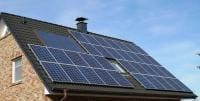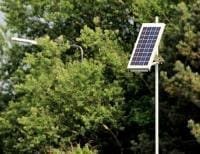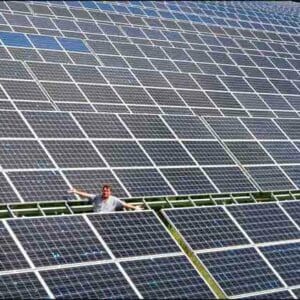The UK’s renewable energy capacity reached its highest peak in quarter 3 of 2016, generating 25% of the UK’s electricity requirement (33.4GW). In just 12 months, the UK has increased its renewable energy capacity by 11.3% (3.4GW) and one third of that renewable energy capacity now comes from Solar PV.
Solar energy, between Q3 2015 to Q3 2016, has seen the largest growth of all renewable energy types, growing 29% (2.5GW) in a year.
Extrapolation on the world’s renewable power trends suggests that we could satisfy the world’s needs for electricity by 2030, providing we continue to steam ahead as we currently are.
There are two reasons why solar is growing so incredibly rapidly.
Solar Has Become Incredibly Cheap
The cost of solar panels is constantly dropping thanks to increased innovation, manufacturing efficiencies and new technologies. A 4kWh system should generate enough energy for a family sized home and can cost less than £8,000.
The falling cost of this technology leads to its second area of growth.
Solar Has Become Incredibly Versatile
The falling costs allow solar to be used in a plethora of applications that were previously shut off for cost reasons.
Unlike Geothermal or Wind or Tidal, Solar power can be as small or as large as you want it to be and the efficiency of the device remains the same.
Recently, Tesla announced plans to bring solar energy to the masses with its affordable solar roofing tiles which produce electricity without damaging the aesthetics of buildings. These tiles are said to be as affordable as regular roofing tiles and as simple to install.
A number of projects propose to implement solar into our already flat and clear roadways. Small areas of roads in France and America have been converted to ‘solar roads’. Still passable by cars and trucks, but silently producing electricity as they do so. Whilst these tests are costly initially, the falling costs and efficiencies in the project allow it to quickly expand and begin to see a return on investment.
A number of companies, like Solar Roadways, aims to put solar panels in our roads, utilising the huge ‘unused’ areas to produce electricity. This technology, whilst initially expensive to install and establish, could lead to more resilient, smarter roads which also produce electricity.
As with all new technology and renewable energies, the future depends on how widely it’s adopted by the large companies and the public.
As solar energy begins to progress, so too must supportive technologies. Energy storage, for instance, must begin to grow and become affordable to ensure that homes (and power companies) have a method of storing and using electricity after sunlight hours.
Overall, more and more households are making the switch to renewable energy, through solar panels, electric vehicles etc. The cost of solar panels is dropping and power storage is increasingly affordable.
Even more surprisingly, corporations are taking responsibility for their energy use and waste output with publicly available ‘environmental policies’ and ‘Green pledges’. In the lead up to Donald Trump’s inauguration, 630 major US companies – including, General Mills, Kellogg’s, Hewlett Packard Enterprise and Unilever – urged Donald Trump to ditch his climate change denial.
Slowly but surely, the use of fossil fuels will become an archaic notion. Even today, a 100% green lifestyle is seen as a luxury. Electric cars and sports cars are no longer mutually exclusive terms and a luxury home entirely self-sustaining.



